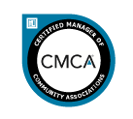|
|
Since 2005, Kelly Richardson's HOA Homefront column has been a resource for HOAs, focusing on improving governance and community living. With more than 800 articles, the column complements CAI manager education, highlights the importance of informed board members and underscores the necessity of understanding legislative impacts on HOAs. It also advocates for cooperation among residents and emphasizes conflict resolution to maintain harmonious communities. |
|
|
There is a significant rise in liens due to unpaid HOA dues in super-lien states, where such liens can take precedence over primary mortgages. This trend signals potential mortgage delinquencies and foreclosures and underscores the financial pressures homeowners face amid rising property taxes and insurance premiums. Louisiana and Colorado saw increases of 171% and 146%, respectively. Conversely, Alaska, Minnesota, Florida and New Hampshire experienced a decrease in lien numbers, according to real estate data provider Benutech.
|
|
|
The WATCH Project, a new nonprofit in Georgia, is collecting anonymous homeowner stories to advocate for stronger accountability and governance in HOAs. It aims to ensure existing rules are enforced and is pushing for initiatives like an oversight board to resolve disputes. The project seeks to use data to highlight widespread problems, guide legislation by highlighting both positive and negative homeowner experiences and promote transparency and fairness.
|
|
|
According to Florida law, associations must adhere to the requirements for notifying homeowners about committee meetings. Only committee meetings involving financial or architectural decisions must be noticed, allow owners to attend them and offer time to speak on agenda issues. Unless the bylaws mandate it, all other committee meetings do not have to be noticed.
|
|
|
| Leadership Strategies and Organizational Management |
|
Dynamic leadership requires mastering the balance between conflicting forces, such as personal growth versus team success. Leaders have to navigate four key tensions: individual versus collective focus, stability versus growth, resilience versus rigidity and stakeholder versus placeholder roles. Effective leaders balance these opposing forces through adaptive intelligence, allowing them to adjust their approach in real-time and thrive amid constant change.
|
|
|
| Ethics and Professional Conduct |
|
A single grave mistake by leaders, be it in private or in public, is enough to destroy the trust they have worked so hard to build with their teams and stakeholders, says Allison Dunn, CEO of Deliberate Directions. Dunn recommends that leaders own their mistakes without excuses, assessing the damage and creating a recovery plan that could include relinquishing some duties or communicating next steps to repair trust.
|
|
|
| The Most Popular Stories From Our Last Issue |
|
| |
 |
| (CAMICB) |
Have you accepted your CMCA digital badge? If you hold an active CMCA, then you're one of the thousands of managers who have access to this free resource you can use to promote your credential. What is a digital badge? Digital badges are a digital representation of your certificate, consisting of an image linking you directly to your digital badge profile. This is a great resource for your email signature, website and social media. Your digital badge will direct homeowners, clients, colleagues and prospective employers to your digital badge homepage, where they can verify your active status and learn about the requirements you met to obtain the CMCA. Learn more on the CMCA digital badge webpage. If you haven't accepted your CMCA digital badge, contact CAMICB at info@camicb.org. |
|
|
| CAMICB is an independent professional certification body responsible for developing and delivering the Certified Manager of Community Associations® (CMCA) examination. CAMICB awards and maintains the CMCA credential, recognized worldwide as a benchmark of professionalism in the field of common interest community management. The CMCA examination tests the knowledge, skills, and abilities required to perform effectively as a professional community association manager. CMCA credential holders attest to full compliance with the CMCA Standards of Professional Conduct, committing to ethical and informed execution of the duties of a professional manager.
The CMCA credentialing program carries dual accreditation. The National Commission for Certifying Agencies (NCCA) accredits the CMCA program for meeting its U.S.-based standards for credentialing bodies. The ANSI National Accreditation Board (ANAB) accredits the CMCA program for meeting the stringent requirements of ISO/IEC 17024, the international standard for certification bodies. The program's dual accreditation represents compliance with rigorous standards for developing, delivering, and maintaining a professional credentialing program. It underscores the strength and integrity of the CMCA credential.
To learn more, visit www.camicb.org |
|
|
|
Community Association Managers International Certification Board (CAMICB)
6402 Arlington Boulevard, Suite 510
Falls Church, Virginia 22042
info@camicb.org
www.camicb.org |
|
|
|
|
|
|
|
| Got this from a friend? Subscribe now and stay in the loop! |
|
 |
|
| |
| Remember you are this universe and this universe is you. |
| | | | | |
